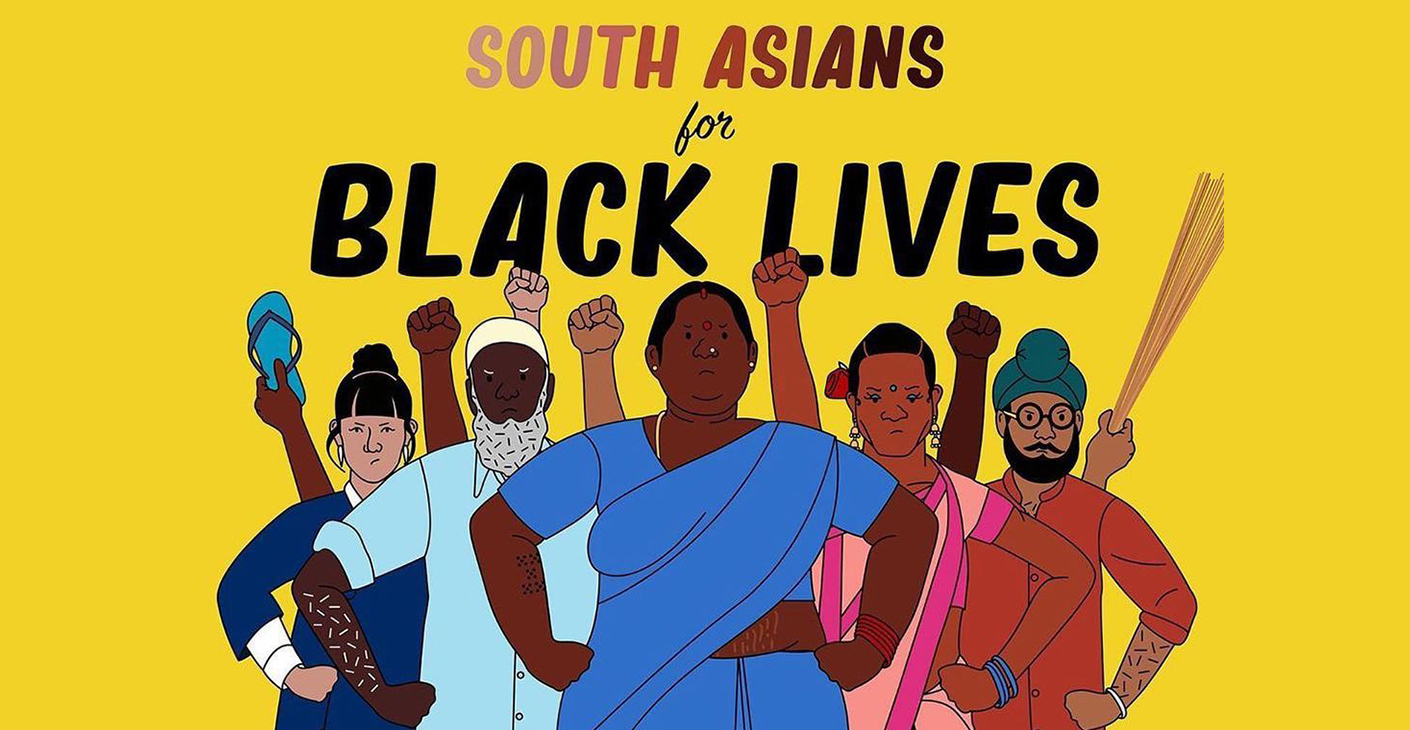Dr. L.B. Williams and Haleema Bharoocha have two things in common: helping communities center Blackness — and weightlifting. Both say that the latter activity helps them in their community work. “I think of the weight that one has to carry as an organizer,” says Dr. Williams, founder of Black Girls Brilliance, a middle school program that operates in the US and in South Africa. “When I lift, I feel transformed. The breath work, the whole-body connection — it helps me transfer that weight to the universe.”
Dr. Williams says that the work of ally organizations, such as the Bay Area-based South Asians 4 Black Lives, is also a critical component of centering Blackness in this country. “South Asians 4 Black Lives isn’t saying that their issues don’t matter — they’re saying that all of our lives improve when Black lives improve.”
Two years ago, Ms. Bharoocha and five friends — all South Asian American women in their 20s — started holding potluck dinners every Sunday to talk about racism and anti-blackness. The group quickly discovered that their experiences were common among young South Asians trying to figure out how to talk about anti-blackness with elders, and how to say ‘racism’ in Urdu, Hindi or Marathi. “It’s helpful to have a space with others who share the same questions and the same values,” she says.
In the midst of a pandemic, much of that space is now virtual, and it’s brought together 55,000 followers on Instagram in its first year. Prior to COVID, the group had planned in-person programming in Oakland, partnering with Black-led, Oakland-based organizations such as the Betti Ono gallery, and the African American Museum and Library. In their pivot to virtual programming, they began offering online workshops to help participants on topics such as how to talk to South Asian dads about Black Lives Matter on Father’s Day, and how South Asians uphold white supremacy in the workplace.
Last year, South Asians 4 Black Lives started looking for funding to support their program. The group said that as an all-volunteer-run effort, the team was grateful that SFF’s Rapid Response Fund provided them not only with their first institutional grant, but a grant free of any reporting requirements. They used the funding to hire a Black-led firm, Pa Ousman Consulting, to provide feedback on their curriculum, train volunteers on anti racism, and to compensate event speakers.
The South Asians for Black Lives program has helped create a much-needed, timely space for tens of thousands of South Asians around the globe. They use their social media presence to lift up mutual aid requests and messages from Black people, to fundraise for Black-led organizations, and to share anti-racist educational content for South Asians. Through this work, the 60-person volunteer group has seen tremendous growth in the South Asian community in terms of understanding, knowledge, and commitment to anti racism.
Dr. Williams says that the way South Asians 4 Black Lives works — by de-centering themselves — in and of itself centers Blackness. “They show up in the trenches and do the work,” she says. “This is what allyship looks like.”


